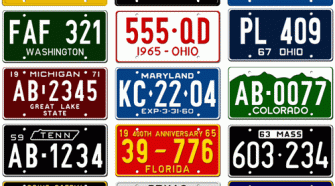Wintry weather is a big contributor to car accidents, especially when people are caught unawares or fail to take the necessary precautions. Drive without extreme care and you may find yourself in a fender bender or perhaps sliding down an embankment and into a ditch.
You can avoid accidents this winter if you employ the following safety tips.
- Just stay home. Unless you absolutely must travel the best thing you can do when it snows is to stay home. Snow-covered roads are hazardous and it takes clean up crews longer to get the job done when people are on the road. Instead of traveling, why not wait out the storm? You’ll be safer if you wait instead of taking to the road and risking getting stuck or in an accident.
- Check your tires. Worn tires mean you’ll have less grip on slick roads. If the snow is especially deep, then even your just installed all-season tires may not be enough. Instead, swap out your radial tires for winter tires. Or, place chains on your tires. You need the maximum possible grip, something the right tires or chains can provide.
- Reduce your speed. The posted speeds may say 45 mph, but that doesn’t mean you should be traveling anywhere near that speed during most conditions. If you’re facing white out conditions, then you will need to reduce your speed to a crawl. Better yet, pull off the road and stay in a warm, dry place until the conditions improve.
- Be aware of black ice. So, the roads are clear you say? Clear roads can be deceptive. A condition known as black ice — transparent in color and reflecting the color of the pavement can cause problems. Black ice can form on any road surface, but especially along the sides of the road and at intersections as well as on bridges. If your car hits black ice it may suddenly skid, causing you to lose control of your vehicle. Never assume that roads are entirely free of ice — keep your speed down and your attention up.
- Allow more space. How much space should you allow between your vehicle and the one in front of you? That space should be longer as you increase your speed, but it should also be stretched if snowy conditions prevail. You need to allow for sufficient stopping or maneuvering time when road conditions are less than ideal. You should also turn off cruise control when roads are slippery and maintain a constant speed yourself. Cruise control on wet roads can cause your vehicle to suddenly surge when you don’t want it to.
- Ensure your car is road ready. Besides having the right tires on your car and keeping a safe distance between vehicles, you need to ensure that your car is in optimum driving condition. This means your brakes should be in excellent shape and no other maintenance issue left unaddressed. Take to the road with fresh wipers and windshield wiper solution. A strong battery, sufficient antifreeze, and clean filters are necessary.
If You Crash
Your best plans to avoid an accident can be upset, especially if other drivers are not careful. If you are in an accident, all cars should be moved away from traffic to avoid further pile up. Turn on your emergency blinkers, raise the hood, and put out warning beacons if you have them.
Contact emergency services, exchange driver information including insurance and licenses, and have your car towed, if necessary. Finally, await your insurance company to provide a settlement before you decide upon a repair company. Only deal with collision experts who have a track record of making repairs on your type of vehicle explains Caliber Collision.
















